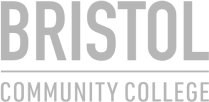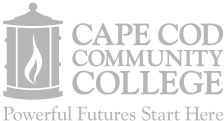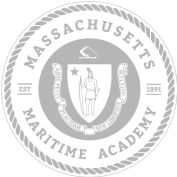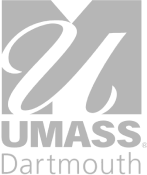PRACTICE TIERS INSTITUTION KSAs
 Foundational
Foundational
Knowledge
– Recognizing the context and focus of ARE initiatives and how it relates to the strategic plan
Skills
– Identifying dissonance and discrepancy in understandings of organizational ARE strategic direction as opportunities for deeper group inquiry into ARE
Actions
– Being deliberate and intentional about collective ARE efforts as aligned with strategic plan initiatives, including using existing tools to gather data on ARE
 Intermediate
Intermediate
Knowledge
– Understanding the context and focus of ARE initiatives, the reality and impact of ARE in the workplace, and how ARE is reflected in the strategic plan
Skills
– Team sense-making: Working with others to make sense of the reality and impact of ARE in the workplace, as well as how it is reflected in the strategic plan
– Prioritizing actions: Identifying and prioritizing actions that will help to achieve the goals of ARE initiatives
Actions
– Collectively identifying ways to capture progress: Working together to identify ways to measure the progress of ARE initiatives and to share this information with others.
– Pursuing improved outcomes: Working to improve the outcomes of ARE initiatives, such as increasing the number of students of color who graduate from college
– Meeting ALL learners’/staff needs: Ensuring that all learners/staff, regardless of their race, ethnicity, or other identity factors, can succeed in college/ the workplace
 Advanced
Advanced
Knowledge
– Having a strong and concrete understanding of what ARE looks like at all levels of the university; relating this knowledge to the strategic plan
Skills
– Knowing how to use systems, processes, and tools in place to track progress for the collective continuous examination of the data for evidence of what is or is not working for all learners across the institution
– Identifying ARE-related patterns and trends campus-wide
Actions
– Clearly identifying, communicating, and pursuing the actions we need to take and why, ensuring that our strategies and interventions directly address any structural/ systemic barriers to achieving racial equity
INSTRUCTIONAL STAFF KSAs
 Foundational
Foundational
Knowledge
– Recognizing the context and focus of ARE initiatives centered on teaching and learning addressing campus-wide racial inequities while also taking stock of current knowledge and understanding of ARE as related to the strategic plan
Skills
– Asking collective critical questions related to ARE, pedagogy, curriculum, and instructional practices/ policies, and knowing when to be deliberate and intentional about ARE efforts in the classroom
Actions
– Recognizing the need to take a closer look at specific ARE matters impacting teaching and learning, including unintentional bias, microaggressions, and equity-minded incidents in the classroom
 Intermediate
Intermediate
Knowledge
– Understanding the best ARE practices for pedagogical and curricular initiatives (culturally relevant, appropriate, affirming)
– Understanding how these practices can be implemented in a campus-wide setting.
– Understanding the strategic plan and how it aligns with ARE initiatives.
Skills
– Assessing the capability and capacity for campus-wide instructional improvement
– Identifying external expertise if needed, including professional development opportunities
– Identifying areas for campus-wide change and areas that are effective and don’t require change
Actions
– Implementing best ARE practices in pedagogical and curricular initiatives
– Providing professional development to support campus-wide instructional improvement
– Monitoring the impact of ARE initiatives and making necessary adjustments
 Advanced
Advanced
Knowledge
– Having a strong and concrete understanding of what ARE looks like for students across campus (not just in one’s own classroom); being clear about what needs to change and what doesn’t in order to achieve ARE
Skills
– Knowing how to use systems, processes, and tools in place to track progress and impact on achieving ARE, and identifying where we have the capability and capacity to improve ARE efforts across campus
Actions
– Being determined to achieve equitable progress and outcomes for all students on campus
– Working to ensure all students and employees across campus have equitable access to support and opportunities to learn
– Utilizing feedback channels to give input on the status of ARE and ARE progress
– Recognizing that addressing ARE issues as part of a whole campus-wide effort or a more global strategic plan is crucial for creating an inclusive and fair educational environment for as many students as possible
MANAGERS/LEADERS KSAs
 Foundational
Foundational
Knowledge
– Noticing and understanding the reality and impact of ARE on campus while recognizing context and focus of ARE initiatives, current knowledge and understanding of ARE, as key elements of the strategic plan
Skills
– Seeking different perspectives on ARE issues in HE while maintaining a learner focus and being open to new campus-wide information about ARE in community colleges and universities in the US
Action
– Knowing when to be deliberate and intentional about campus-wide ARE efforts in alignment to strategic plan- with willingness to change/adjust/ augment the strategic plan if need be
 Intermediate
Intermediate
Knowledge
– Evaluating the adequacy applicability of findings and addressing different interpretations of data related to the impacts of implicit bias and microaggressions as structural/ systemic barriers and obstacles on campus
Skills
– Scrutinizing comprehensive data sets, including both qualitative and quantitative data, with an open mind
Actions
– Prioritizing resources to achieve equitable outcomes, in alignment with strategic planning and goals. Allocating resources to address campus-wide ARE issues, considering the magnitude of the desired change
 Advanced
Advanced
Knowledge
– Having a strong and concrete understanding of what ARE looks like at the university level; being clear on what problem or issue the university/campus is trying to strategically address, and knowing how we will recognize progress on campus-wide ARE progress
Skills
– Identifying where we have the capability and capacity to improve; identifying and acquiring external expertise, support, and resources as needed
– Transparently managing progress towards the promotion of equity across campus.while continuously asking critical questions
Actions
– Clearly identifying, communicating, and pursuing the actions we need to take and why in order to ensure all learners have equitable access to support and opportunities to learn, and that all maintain a learners’ perspective while making consistent progress towards campus-wide ARE goals





